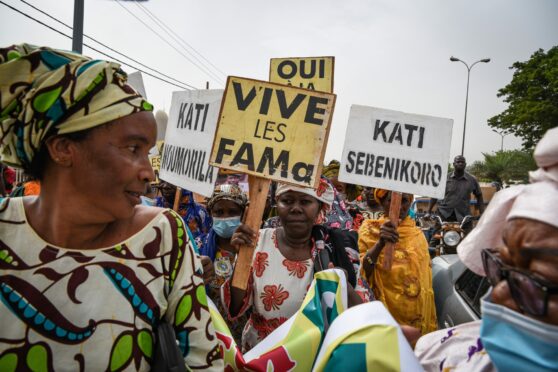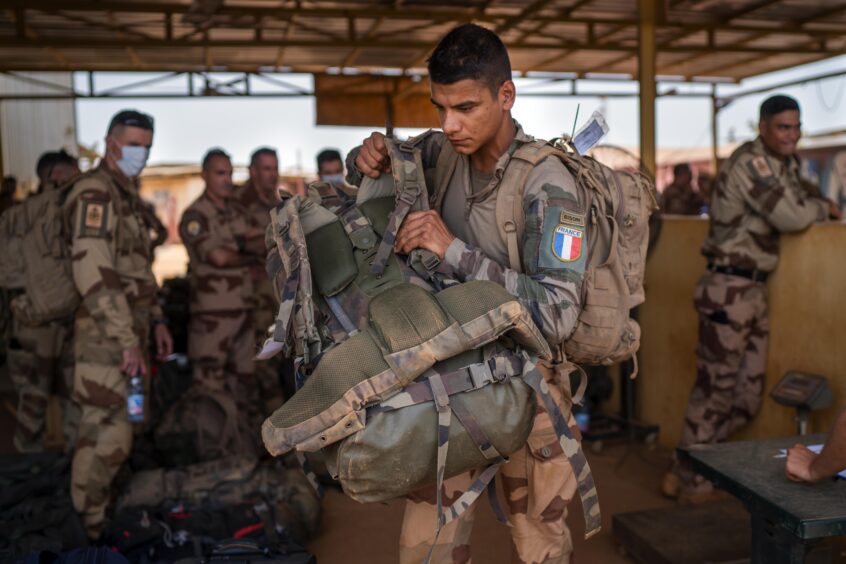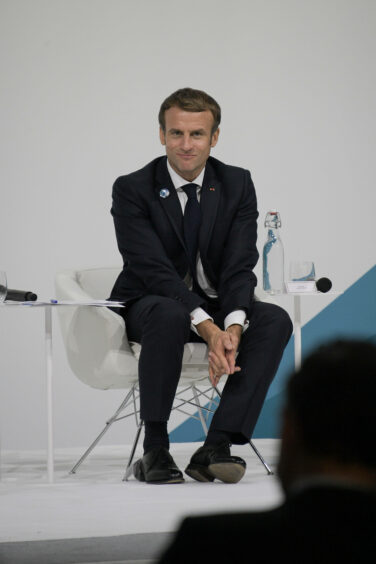
The repercussions of the sudden and humiliating retreat by America and her allies, including Britain, are continuing to be felt in Afghanistan, where famine looms, and across the world as thousands of refugees attempt to flee the country.
What started out as a flagship campaign of the War on Terror came to an abrupt, chaotic halt over the summer as the Nato allies left after two decades. It meant victory for the Taliban; the Islamist fundamentalist movement committed to near-mediaeval governance of the country.
Soon after their forces stormed into Kabul in August, the regime that had helped al Qaida with worldwide atrocities, including the 9/11 attacks on the USA in 2001, was back in control. Twenty years on, the botched evacuation by Western forces from the Afghan capital led to an airport suicide bomb that killed 13 US soldiers and 100 locals, and wounded scores of others.
“This is only the beginning,” said former American national security adviser Herbert McMaster. “This is what happens when you surrender to a terrorist organisation.”
Such words are ringing ominously in the ears of French President Emmanuel Macron, who is involved in a potentially disastrous climbdown of his own.
It relates to a crucially important conflict in Africa that – for all the wrong reasons – has been getting little attention. This “Forgotten War on Terror” – as it is dubbed in Paris – started in January 2013 when French forces arrived in Mali, their former colony in West Africa, to stop the advance of jihadis emboldened by the collapse of Libya.
The shooting dead of Colonel Muammar Gaddafi, the Libyan dictator, just over a year earlier, followed an air-bombing campaign led by France and Britain during the Arab Spring. That campaign was meant to bring peace and democracy to the north African country, but instead unleashed chaos. Groups such as al Qaida and the so-called Islamic State (Isis) set up bases just across the Mediterranean from Europe.
Migration routes that had previously been controlled by Gaddafi were also easily exploited by slave traders and people smugglers. The latter wanted to get their paying clients to countries such as Italy and Spain, and then on to ones further north, including the UK.
The biggest fear was that terrorists would join the influx. Therefore the French considered their initial operation in Mali to be vital.
Within a year all major cities and towns threatened by the insurgents were controlled by the French, as up to 1,000 terrorists were killed.
But jihadist leaders fled to other parts of a gigantic area of Africa known as the Sahel, to regroup and strike again.
The Sahel straddles thousands of miles across central Mali, and desert areas of other former French colonies such as Chad, Burkina Faso, Mauritania and Niger.
In response, the French launched Operation Barkhane. It started in January 2014, as a 3,000-strong French force working with local allies ran down insurgents across the entire Sahel.
Jean-Yves Le Drian, defence minister in Paris at the time and now President Macron’s Foreign Affairs Minister, summed up the importance of Barkhane by saying it would “block the highway up to Libya” for the terror groups.
Recent successes of Barkhane included the September killing of Adnan Abu Walid Al-Sahrawi, a notorious leader with a $5 million price tag on his head for assassinating American special forces troops. Following his death in September, Macron said: “This is another major success in our fight against terrorist groups in the Sahel.”
But, at the same time, Macron said Barkhane would end in 2022, despite the need to stop a full-blown Isis-style caliphate being set up across the Sahel. He said drones and special forces would still support African troops, but the downscaling of anti-terrorist operations led to accusations he was abandoning a crucial war, just as the US did in Afghanistan.
At one stage, France had hoped to form a more enduring coalition of African and European nations to continue the fight, but many feared another unmanageable and unwinnable “Forever War” – as the Afghan conflict became known.
Instead, French army bases in the Malian town and villages of Kidal and Tessalit, and the city of Timbuktu, will be closed by the end of the year and handed over to the Malian Army.
This is exactly the kind of strategy that failed in Afghanistan, as Afghan troops trained and equipped by the West at a cost of billions swiftly capitulated to the Taliban.
After two military coups in a year, the authorities in Mali, with the support of swathes of the population, are talking to the Russian mercenary force, the Wagner group, about replacing French troops to protect the country from jihadis.
Public opinion has apparently turned against France, the former colonial power, in Mali and many will be happy to see them go. However, the proposed involvement of Wagner, which is suspected of being linked to the Kremlin, has alarmed Western powers.
Meanwhile, the al Qaida and Isis affiliates in the Sahel have already expressed their delight at events in Afghanistan. “It has given them a huge psychological boost – it shows what continued fighting against the West can achieve,” a security source in Paris who advises the Macron government told The Sunday Post.
“Since the Afghanistan surrender, there has been an increase in terror attacks across Mali and neighbouring countries. The groups carrying them out have posted congratulatory messages to the Taliban on social media. As usual, those who will suffer most from the withdrawal of professional French forces will be civilians, and there is no doubt the security threat to Europe will intensify.”
Nigerian President Muhammadu Buhari is one of numerous African leaders who have voiced similar concerns, saying: “There is a sense that the West is losing its will for the fight.”
There have been limited attempts to fill the gap caused by imminent French withdrawal. A 300-strong British force, the Long Range Reconnaissance Group (LRRG), is operating in the Sahel as part of a United Nations mission, for example.
Last month it became the first UK force to kill enemies since the majority of British combat troops left Afghanistan in October 2014.
Isolated firefights with Isis operatives in Mali taking part in the fastest-growing Islamist insurgency in the world will not stop the terrorist advance, however.
The UN is expected to pull out of the Sahel next year too. A spokesman for the Mali government said they – like the French – were “abandoning Mali in mid-flight”.
This comes after the last year in Mali was the most lethal since fighting began there in 2012, with 2,845 killed. The killing of 54 civilians in the village of Ouatagouna in August is one of numerous crimes against humanity being investigated.
But Lt Col Will Meddings, the commanding officer of LRRG, was insistent the Malian deployment would not turn into a long-term counterinsurgency operation. He said: “I don’t think this will turn into another Afghanistan – the dynamics are very different, and the UK’s involvement is time limited.”

Enjoy the convenience of having The Sunday Post delivered as a digital ePaper straight to your smartphone, tablet or computer.
Subscribe for only £5.49 a month and enjoy all the benefits of the printed paper as a digital replica.
Subscribe
